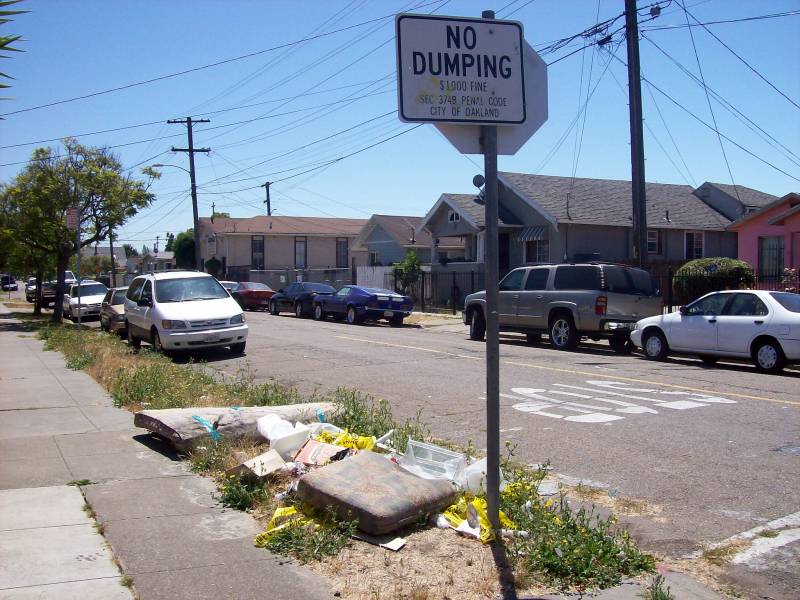Under Measure RR, which the City Council voted unanimously to place on the November ballot, the city would be able to remove that limit and impose higher fines for some of the worst violations. (Note: Oakland's Measure RR is not to be confused with Santa Clara County's Measure RR, a sales tax for Caltrain).
"For very egregious violators of the municipal code, $1,000 is not enough to deter them from breaking the rules," said Oakland Councilman Dan Kalb, who introduced the measure. "Sometimes they will just pay the $1,000 and keep doing it."
Kalb said the cap should be raised to at least $5,000 to effectively thwart serial violators.
"It hasn't been changed in 50-plus years. That's crazy," he said. "The goal is not to get more money — the goal is to deter the bad behavior."
If passed by a majority of voters, the measure would require the City Council to hold public hearings before raising limits for specific violations, Kalb said. He noted that most fines for less serious violations that are currently well below the $1,000 cap would not go up.
The measure, he said, is particularly aimed at certain bad actors who hire themselves out to haul away people's junk, ostensibly to the county dump, but end up tossing old mattresses, broken refrigerators, construction debris and whatever else in various places around the city. For many of these operators, getting caught and paying the maximum fine costs much less than paying disposal fees at the dump, leaving the city to foot the bill — which adds up to millions of dollars each year — to clean up the mess.
"This happens time and time again," Kalb said. "Sometimes it's just a one-off of someone moving out of an apartment," Kalb said. "It's the ones that do it repeatedly and make money that we are trying to go after."
